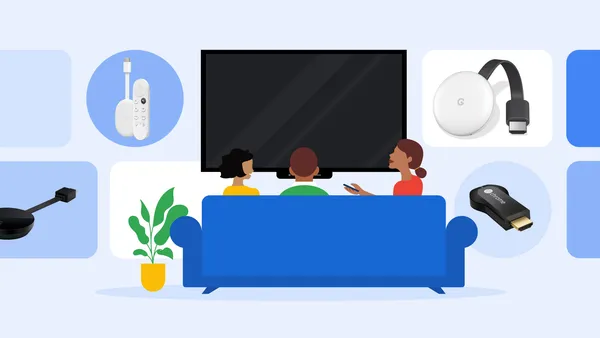LTS-120 is being updated in the LTS (Long Term Support) channel, version 120.0.6099.319 (Platform Version: 15662.116.0), for most ChromeOS devices.
Chrome for Android Update
Hi, everyone! We've just released Chrome 127 (127.0.6533.103) for Android . It'll become available on Google Play over the next few days.
This release includes stability and performance improvements. You can see a full list of the changes in the Git log. If you find a new issue, please let us know by filing a bug.Google Chrome
Source: Google Chrome Releases
Extended Stable Channel Update for Desktop
The Extended Stable channel has been updated to 126.0.6478.234 for Windows and Mac which will roll out over the coming days/weeks.
A full list of changes in this build is available in the log. Interested in switching release channels? Find out how here. If you find a new issue, please let us know by filing a bug. The community help forum is also a great place to reach out for help or learn about common issues.
Source: Google Chrome Releases
Chrome Stable for iOS Update
Hi everyone! We've just released Chrome Stable 127 (127.0.6533.107) for iOS; it'll become available on App Store in the next few hours.
This release includes stability and performance improvements. You can see a full list of the changes in the Git log. If you find a new issue, please let us know by filing a bug.
Erhu Akpobaro
Google Chrome
Source: Google Chrome Releases
Stable Channel Update for Desktop
The Stable channel has been updated to 127.0.6533.99/.100 for Windows, Mac and 127.0.6533.99 for Linux which will roll out over the coming days/weeks. A full list of changes in this build is available in the Log.
Security Fixes and Rewards
Note: Access to bug details and links may be kept restricted until a majority of users are updated with a fix. We will also retain restrictions if the bug exists in a third party library that other projects similarly depend on, but haven’t yet fixed.
This update includes 5 security fixes. Below, we highlight fixes that were contributed by external researchers. Please see the Chrome Security Page for more information.
[TBD][350528343] Critical CVE-2024-7532: Out of bounds memory access in ANGLE. Reported by wgslfuzz on 2024-07-02
[$11000][353552540] High CVE-2024-7533: Use after free in Sharing. Reported by lime(@limeSec_) from TIANGONG Team of Legendsec at QI-ANXIN Group on 2024-07-17
[$7000][355256380] High CVE-2024-7550: Type Confusion in V8. Reported by Zhenghang Xiao (@Kipreyyy) on 2024-07-25
[TBD][352467338] High CVE-2024-7534: Heap buffer overflow in Layout. Reported by Tashita Software Security on 2024-07-11
[TBD][352690885] High CVE-2024-7535: Inappropriate implementation in V8. Reported by Tashita Software Security on 2024-07-12
[TBD][354847246] High CVE-2024-7536: Use after free in WebAudio. Reported by Cassidy Kim(@cassidy6564) on 2024-07-23
We would also like to thank all security researchers that worked with us during the development cycle to prevent security bugs from ever reaching the stable channel.
Interested in switching release channels? Find out how here. If you find a new issue, please let us know by filing a bug. The community help forum is also a great place to reach out for help or learn about common issues.
Source: Google Chrome Releases
Android Device Streaming: Announcing Early Access to Samsung, Xiaomi, and Oppo Device Labs

At Google I/O 2024, we announced Android Device Streaming in open beta, which allows you as a developer to more easily access and interactively test your app on real physical devices located in Google data centers and streamed directly to Android Studio. This enables teams in any location to access a variety of devices across top Android device manufacturers, including the latest family of Google Pixel and Samsung Galaxy series devices.
We’re significantly expanding on the diversity of devices available in this service by working closely with Android device manufacturers (also known as original equipment manufacturers, or OEMs)—such as Samsung, Xiaomi, and Oppo—to connect their device labs to Android Device Streaming, so you can access even more physical devices directly in your workflow in Android Studio. This integration is offered with the same performance, stability, and security benefits you get with devices provided by Google. Keep reading for more details below, as well as how you can sign up for the early access and take advantage of these new devices.

Signup for Early Access to OEM Lab Devices
If you haven’t already done so, follow the steps to get up and running with the beta release of Android Device Streaming, which will give you access to all the Google-hosted devices to test with directly from Android Studio. Later this year, we will start an Early Access Program that allows participants to use Android Device Streaming to connect to devices hosted by our OEM partners. This expands the catalog of test devices available to you with Android Device Streaming.
To kick off this program, we’re first partnering with Samsung, Xiaomi, and Oppo. These labs will be situated in various locations around the world, and you will be able to use the Firebase project you’re already using with Android Device Streaming in Android Studio to access them. Your Firebase project’s administrator will have control to enable or disable individual OEM labs.
If you’d like to participate in the EAP for accessing OEM device labs, fill out this form, and we will let you know if you and your team have been accepted. During the EAP, OEM-provided devices will not be billed or counted against your promotional monthly quota.
We look forward to sharing more details during Google’s I/O Connect Beijing in early August 2024.
In the meantime, we encourage you to try out the devices currently available in Android Device Streaming. Currently, the Android Device Streaming program is in a promotional period, with a higher amount of monthly minutes offered at no cost, which will last until approximately February 2025.
OEM Labs powered by OmniLab

Some of you may wonder how these devices are being connected through to Android Studio. Under the hood, Android Device Streaming is built on top of the device platform for Google, OmniLab. OmniLab, the same device platform that powers all internal device labs, is also powering the OEM labs. Omnilab did this by open sourcing their Android Test Station (ATS) framework available to its open source.
OmniLab provides a framework to ensure that your Android Device Streaming session is secure and performant. You’re able to deploy, debug, and interact with your app on these remote devices through a direct ADB over SSL connection, all without having to leave the IDE. And when the session ends, the device data is fully wiped and factory reset before it’s made available to another developer.
In summary, if you’d like to participate in the EAP for accessing OEM device labs, fill out this form, and we will let you know if you and your team have been accepted. During the EAP, OEM-provided devices will not be billed or counted against your promotional monthly quota.
Be part of our vibrant community on LinkedIn, Medium, YouTube, or X and share your experiences on using Android Device streaming in Android Studio.
Source: Android Developers Blog
From your doorbell to your TV: Our newest smart home products
Source: The Official Google Blog
15 startups using AI to tackle big issues in infrastructure
 Google for Startups AI Academy: American Infrastructure provides mentorship, training, and resources to help founders scale solutions and benefit communities.
Google for Startups AI Academy: American Infrastructure provides mentorship, training, and resources to help founders scale solutions and benefit communities.
Source: AI
Your smart home is getting smarter, with help from Gemini
 We're using Gemini models to make Nest cameras and Google Home experiences smarter and more helpful - and to make Google Assistant more natural and conversational on hom…
We're using Gemini models to make Nest cameras and Google Home experiences smarter and more helpful - and to make Google Assistant more natural and conversational on hom…
Source: The Official Google Blog
7 memorable moments in Chromecast’s history
 Take a look back at Chromecast’s history over the past 11 years — and learn about the future of streaming TV with Google.
Take a look back at Chromecast’s history over the past 11 years — and learn about the future of streaming TV with Google.
 Posted by Grant Yang (Product Manager for OmniLab) & Adarsh Fernando (Product Manager for Android Studio)
Posted by Grant Yang (Product Manager for OmniLab) & Adarsh Fernando (Product Manager for Android Studio)